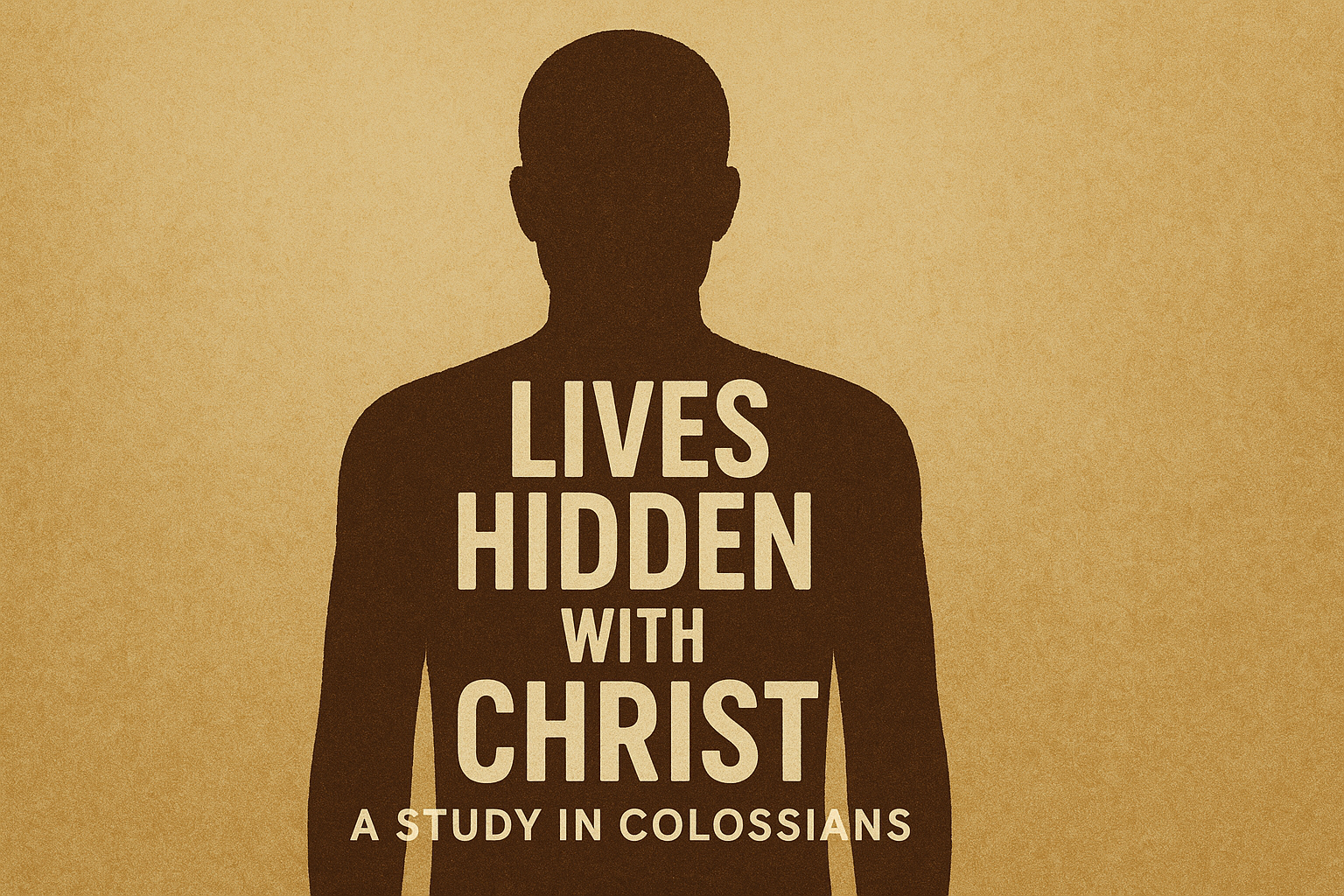You can listen to the full message here: Lives Hidden With Christ - Faith, Love, and Hope
We continue our study of Colossians, Lives Hidden with Christ, focusing on chapter 1, verses 3–8.
Before diving in, it’s important to recognize that verses 3–23 form one big thought from Paul. It’s a single opening salvo—one long, flowing section. Even though our Bibles break it up with headings and even though we’re studying it in smaller chunks, it’s all part of one whole. Today, we’re taking verses 3–8.
Paul writes:
“We always thank God, the Father of our Lord Jesus Christ, when we pray for you, because we have heard of your faith in Christ Jesus and of the love you have for all God’s people—the faith and love that spring from the hope stored up for you in heaven and about which you have already heard in the true message of the gospel that has come to you. In the same way, the gospel is bearing fruit and growing throughout the whole world—just as it has been doing among you since the day you heard it and truly understood God’s grace. You learned it from Epaphras, our dear fellow servant, who is a faithful minister of Christ on our behalf, and who also told us of your love in the Spirit.”
—Colossians 1:3–8
The Triad of the Gospel
Did you catch it? Three words stand out: faith, hope, and love.
Paul’s letters return to this triad again and again, echoing 1 Corinthians 13: “These three remain: faith, hope, and love. But the greatest of these is love.”
In Colossians, Paul flips the order slightly:
- He has heard of their faith in Christ.
- He has heard of their love for all God’s people.
- Both are rooted in their hope, the treasure stored up for them in heaven.
For Paul, hope is not a wish or a dream. It’s a certainty rooted in God’s grace through the gospel. This hope is the assurance of full reconciliation with God—the undoing of the fall, the restoration of walking with Him “in the cool of the day.” It’s the confident trust that one day everything will be made right.
Hope That Produces Faith and Love
Paul reminds the Colossians: you already have this hope. It’s certain. It’s secure. It’s stored in heaven.
That hope produces two things:
-
Faith – The trust that God is sovereign and good, even in hardship. Faith gives us spiritual stamina to keep moving forward through grief, pain, and struggle. It’s what enables us to take the next step when we don’t know what comes next.
-
Love – The kind of love that drives out fear. When we live in hope, we no longer need to fear those who are different from us. Instead, we move toward neighbors—and even enemies—with love. This love identifies the church. It marks God’s people as a community shaped not by fear but by grace.
Do We Understand the Gospel?
Paul commends the Colossians for truly understanding God’s grace. This isn’t mere head knowledge, like knowing that 2+2=4 or reciting the ABCs. It’s intimate, heart-level knowledge. It’s the kind of understanding that produces awe, gratitude, and transformation.
The question for us is this:
- Do we truly understand the gospel?
- Do we live as people whose certain hope in Christ produces faith and love?
- Or are we still shaped by fear, distrust, and division?
When we grasp the certainty of our hope—our reconciliation, redemption, and restoration in Christ—it changes everything. Faith and love spring up naturally from that soil.
May it be said of us, as it was of the church in Colossae: their hope in Christ gave rise to faith and love.
Closing Prayer
Heavenly Father, may we be a people whose faith and love spring from the sure hope stored up for us in heaven. May our neighbors and even our enemies see in us a reflection of Christ’s love. And may the testimony of our lives echo that of the Colossians: they were a people of faith and love. In Jesus’ name, Amen.
